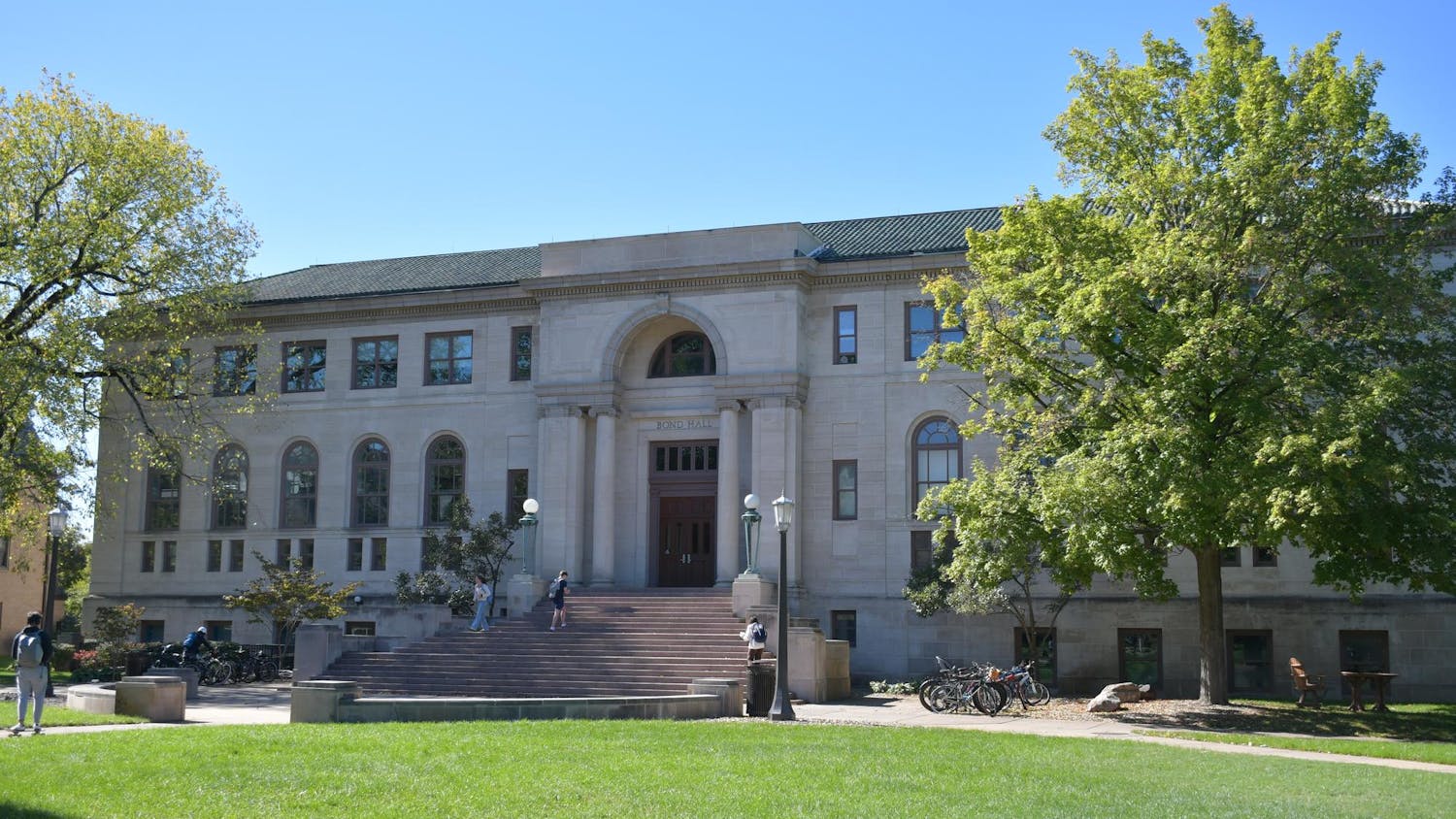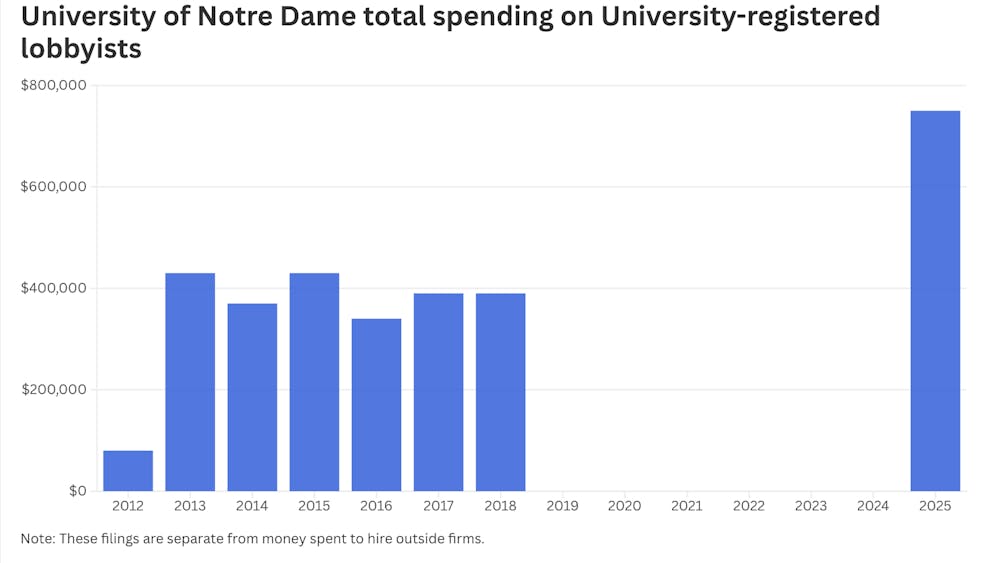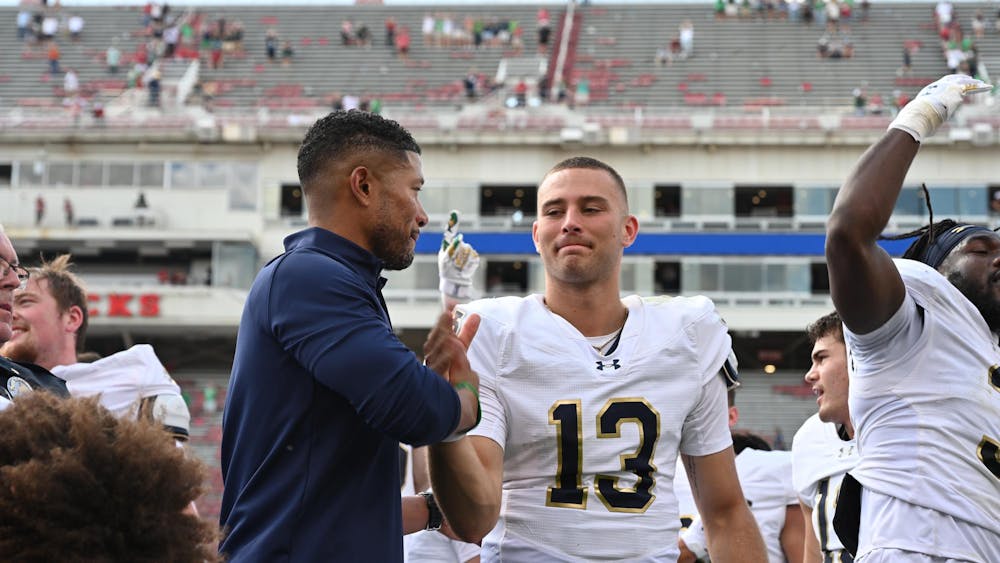University of Pennsylvania professor of political science John DiIulio gave a lecture Friday afternoon titled “The ‘Silent Epidemic’ Revisited: Can Catholic Educators Reignite the Fight to Improve Urban Schools?” in which he argued Catholic schools can help solve the pressing education issues in the United States, but only if Catholic leaders wholly dedicate themselves to the cause.
The lecture was the first in the Father Tim Scully, CSC Lectures on Education in the Service of Citizenship, named in honor of the founder of the Alliance for Catholic Education (ACE). DiIulio said more people must approach educational shortcomings with the same intensity as Scully.
“If we had more Catholic leaders and educators at all levels like our own [Fr. Tim Scully] … if we had more Catholic leaders who practiced, as Fr. Tim does everyday, what Pope Francis has preached about combatting the sinful inequalities in education and other domains,” DiIulio said. “Then I submit to you we would not still be coping with the species of problems [we have in American education].”
In addition to the high dropout rates for minority students and the well-documented achievement gap, DiIulio said the “achievement trap,” which arises out of income disparity, often dooms low-income students.
“The only variable that you can point to in the lineup of suspects to why this is happening is the fact that they are low-income children,” he said. “In other words, they’re at the top of their class in grades one, two, three and even into [fourth], but only 56 percent of these high-achieving, low-income students maintain their status as high-achievers through fifth grade.”
DiIulio, who also served as the first director of the White House Office of Faith-Based and Community Initiatives under President George W. Bush, said the statistics surrounding the achievement trap are shameful.
"The rate at which these high-achieving, low-income children are in that ‘silent epidemic’ population is astounding,” he said. “It’s convicting. We ought to feel convicted by it.”
The problem is well documented enough, DiIulio said, that educators know how to combat it.
“We know, for example, that in addition to the three R’s, we need the 4 R’s: reading, writing, arithmetic but also relationships and relationship building,” he said. “We know that school-based mentoring, whether it’s done by Big Brothers, Big Sisters of America or by any credible, decent, up-close-and-personal mentoring organization … we know, in theory, that it makes a demonstrative positive difference in closing the achievement gap, in disarming the achievement trap, in turning 10th graders who might drop out who don’t.”
DiIulio said the present day is a “Gettysburg moment,” and in order to win the figurative war, Catholic educators must shake old mindsets.
“The Catholic leadership approach to the silent epidemic, to the achievement trap, to the achievement gap which has hovered over us for 50-plus years, can be reignited,” he said. “They can be a major force for addressing the problems of urban education at large. They can do that … [with] less talking, more doing, less Catholic chauvinism and romanticism about parish days gone by.
“The great sadness is that way too many Catholic leaders and educators, at least in the University business, … are either not interested, not in the fight or are in it in a narrowly, institutionally, self-interested way. The problem is that too many of them approach the effort to support and strengthen Catholic schools as if it were a Catholic world end in itself.”
In order to effectively use Catholic education as a universal educational career, Catholics must work with those who most need help, DiIulio said.
“Catholic schools which have been lost cannot be saved, supported and strengthened without saving all those who need those schools,” he said. “I’m not just talking morally and spiritually, I’m talking practically [and] I’m talking politically. Catholic schools cannot be saved unless the effort to save them involves an effort to save all the children who could benefit the most, most particularly in urban America, from those schools.”
Read More
Trending









